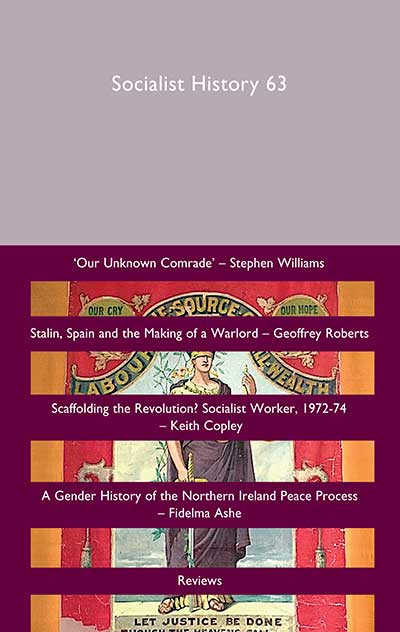
A gender history of the Northern Ireland peace process
Socialist History - Print ISSN 0969-4331 - Online ISSN
Volume 2023 Number 63
A gender history of the Northern Ireland peace process
Fidelma Ashe pages 71‑88
Abstract
This article explores the gender history of the peace process in Northern Ireland (NI). The Good Friday/Belfast Agreement laid the foundation for ending the violent conflict that had characterised the region since 1969. Understanding the role that gender has played in building peace in NI requires an analysis of the role of gender and gender-power relationships during the period of conflict, colloquially known as the NI troubles. Gendering both peace and conflict in NI exposes women’s experiences during the conflict, which includes its gendered harms and women’s resistance to gender hierarchies, stereotypes, and the militarism that marked the context. When opportunities for peace emerged in the 1990s, women wanted their voices to be heard during the negotiations that followed. However, the peace-building processes and institutions that materialised meant that women faced many challenges in their struggle for a positive peace that included addressing the gendered inequalities of the past and the present.
SORRY - you are not registered as being permitted online access to the full text of this article
You have the following options:
- If you are viewing this via an institution or academic library you can ask that your institution takes out a Subscription to this journal.
- If you already have a Personal Subscription please login below
Forgotten your username / password? Click here to locate
- Subscribe to Socialist History via the Socialist History Society website. An annual UK print subscription is £30.00.
To cite this article
Fidelma Ashe (2023) A gender history of the Northern Ireland peace process, Socialist History, 2023(63), 71-88
